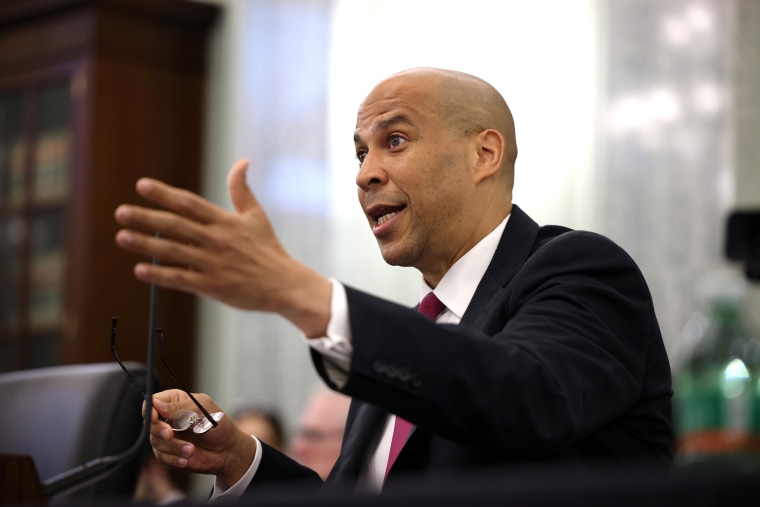WASHINGTON — Senate Democrats and Republicans were largely in agreement Wednesday about the need for Congress to quickly pass legislation that would allow college athletes to monetize their name, image and likeness.
Sen. Maria Cantwell, D-Wash., has been leading negotiations to create a single national standard for college athletes as states will soon implement their own laws on the issue.
“There's broad consensus that Congress should pass a law that guarantees college athletes the right to enter into NIL agreements with third parties,” Sen. Roger Wicker, R-Miss., said at a hearing held by the Senate Commerce, Science and Transportation Committee, using an abbreviation for name, image and likeness.
Sen. Cory Booker, D-N.J., expressed disappointment that little has changed on the issue and criticized college athletics for being a “for-profit industry that is too often exploiting men and women, taking advantage of their genius, talent, artistry, leaving them often injured with a lifetime worth of costs.”
Booker added that there are also deeper issues that must be addressed such as heat-related illnesses and the lack of enforceable concussion protocols by the National Collegiate Athletic Association.
NCAA President Dr. Mark Emmert urged Congress during the hearing to pass a national NIL law so that college athletes are operating on an equal playing field. He pointed out that there could be at least a dozen states that will soon implement their own NIL laws so that student athletes can monetize their name, image and likeness, but there are about 35 states that won’t have that policy in place.
Emmert said that having varying state laws as opposed to a national model will complicate the industry, saying in his written testimony Wednesday that the different state laws “threaten the NCAA’s ability to provide uniform NIL opportunities as well as fair, national competition.”
Emmert said that schools in states where NIL laws will take effect on July 1 will have an “enormous advantage” over states that don’t offer those opportunities and said students will “be looking for opportunities to transfer to schools where they can monetize their name, image and likeness.”
Eighteen states have passed laws that allow student athletes to be compensated for the use of their name, image and likeness, according to Emmert.
Mark Few, head men's basketball coach at Gonzaga University, which lost to Baylor University in this year's championship game, testified Wednesday that it’s not an “exaggeration to say the future of college sports is in jeopardy” because there is no national NIL standard, which he called “critical.”
“I'm embarrassed that we're here having to deal with it right now,” Few said. “These changes are long, long overdue. All athletes deserve to use their own name, image and likeness in commercial endorsements and on social media. And I'm very much in favor of them profiting as much as they possibly can from this.”
Few emphasized that this is not an issue the NCAA or individual states can fix, saying, “We can't run competitive, fair championships if every state has a different rule.”


